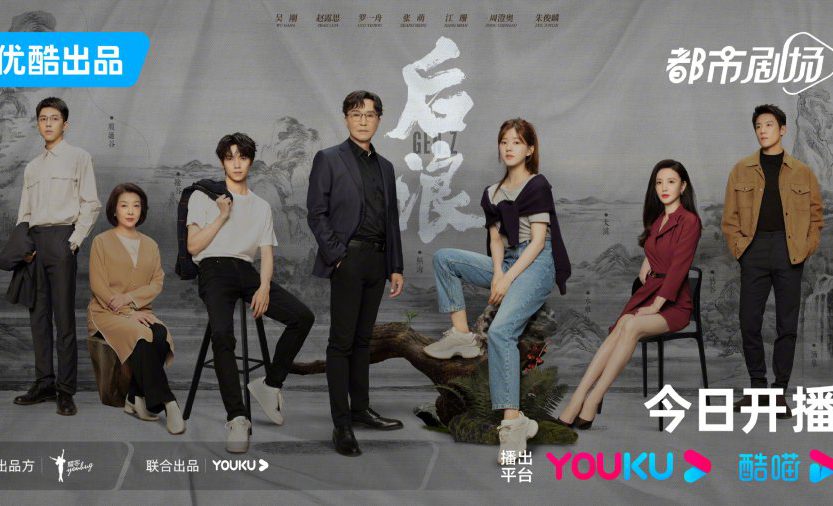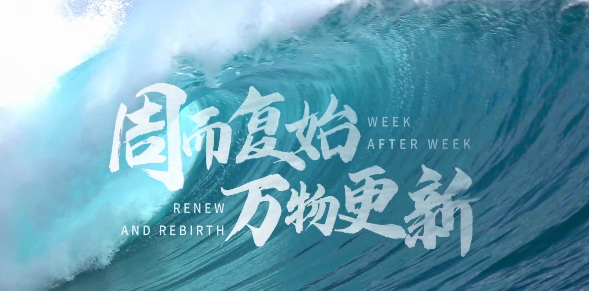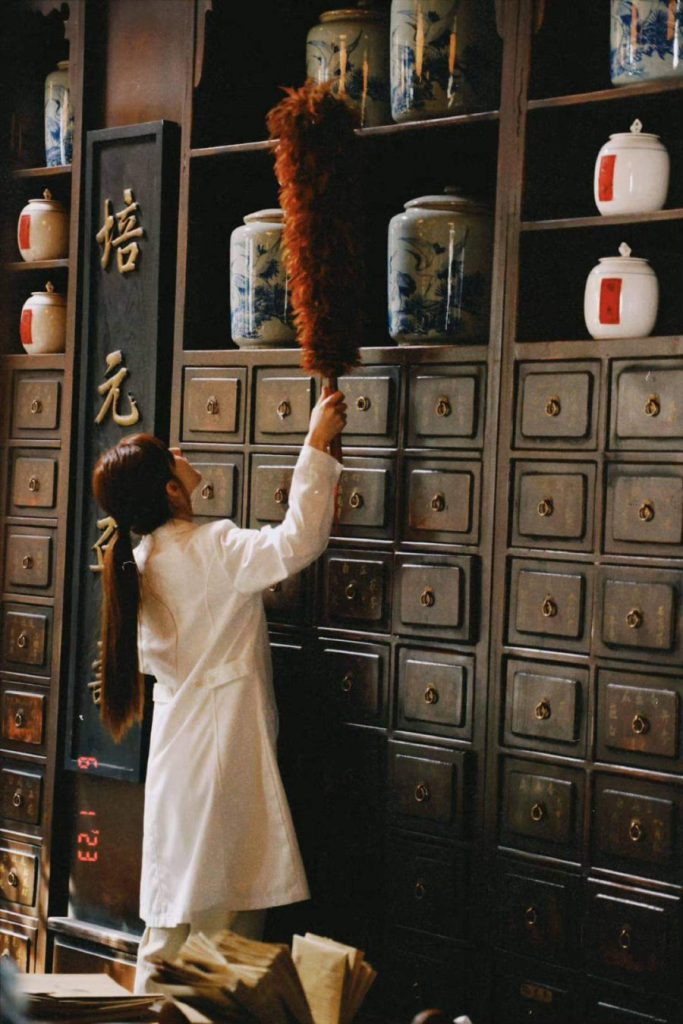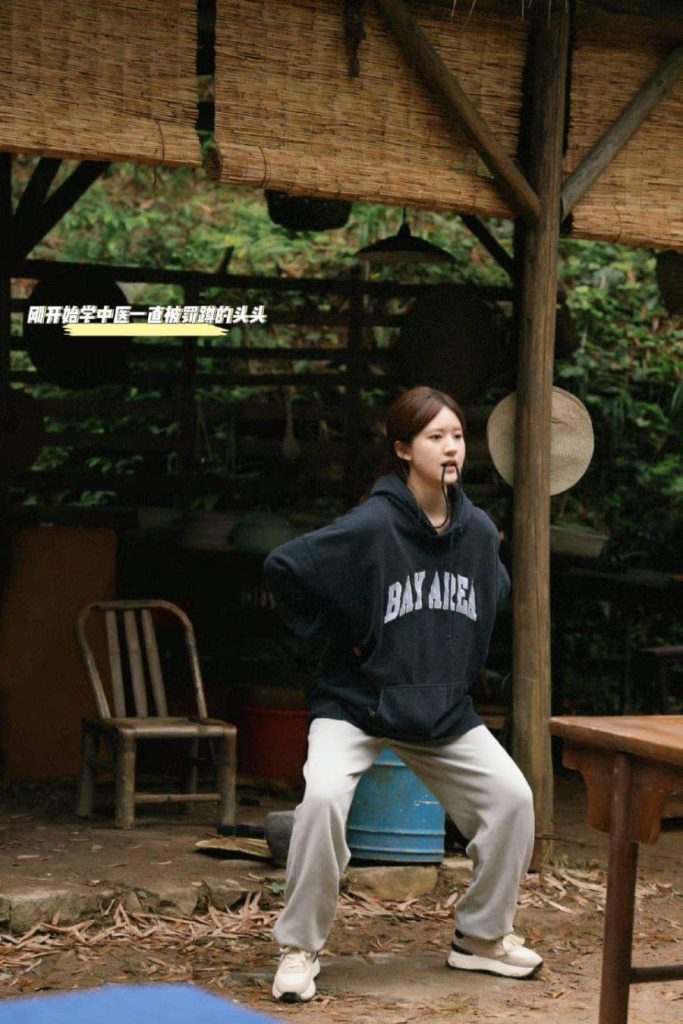NAMES AND CULTURELast episode 40 37:00-37:39 The name change Master Rèn explained that he could not call her Sūn Wùkōng 孙悟空 who is the famous Monkey King. But after having long considered her as an impish but sweet and wild little "Monkey Sūn ", he found a name that would be more serious and cultured than 孙头头 : one that would fit a growing leader, and remind also of the greatness of the path-clearer for pilgrim Táng Sānzàng in the epic Journey to the West, the most universally known Chinese classic. Dà Yuàn 大 愿 means "Great Ambition" and being humble does not mean one should lack ambition. The "yuàn" key and personal name (usually last in Chinese two-character given names) is that in 意愿 Yìyuàn (will) which is also in 愿意 Yuànyì (be willing to) It is also near homonym with some words that are linked to officialdom such as 教员 Jiàoyuán (teacher), 辅导员 Fǔdǎo yuán (counselor). The new name will establish her as one who has the drive and backing of her elders, sect and authorities.
Actually there are even more implications perhaps in the name change, since 孙 is also the family name of the great Sūnzǐ / Sun Tzu 孫子 pen name of the famous general and author of The Art Of War! |
Post-script of April 2025: I have added some colors to this "companion piece", revised contents to correct some spelling mistakes and reorganize some paragraphs, add the brief info about the drama, which I did not include at first, and the link to the Magic brush animated movie. Here, as a bonus, is a fun video from Youtube, with translation of the dialogue by @fuzhiqin0618uki
 Link back to Table of contents |
|
Thank you for linking my editorial article on TCM in The Best Thing Cdrama! I have answered your comments. They won't show up right away after you submit them. WordPress requires me to approve any comment to avoid spam. I wrote about other Cdramas, too, if you would like to check them out. Mostly recaps for long Cdramas, tho!
 Going back to look for some articles or testimonials about Hòulàng /GenZ, I found this article from "Global Times", by Xu Liuliu, published: May 21, 2023 10:33 PM - text below :
Going back to look for some articles or testimonials about Hòulàng /GenZ, I found this article from "Global Times", by Xu Liuliu, published: May 21, 2023 10:33 PM - text below :
Director Han Xiaojun takes aim at ‘Gen Z’ in TCM dramaChinese drama Gen Z, focusing on the inheritance of traditional Chinese medicine (TCM), has raised young people's attention and interest in this world renowned heritage. The show's director Han Xiaojun said he hopes "more audiences can benefit from the TV series whether it is the professional knowledge of Chinese medicine or in the deeper realm of life." The drama, which is currently airing on Chinese streaming site Youku, breaks from traditional urban dramas to use a new production technique to delicately portray the calm professionalism of veteran and young Chinese medicine practitioners. In the eyes of the director, TCM has always given people an impression that it is heavy and serious. When talking about it, people always think it is a profession made solely of veteran Chinese medicine practitioners, but in fact all these well-known experts grew up step by step from being young students. "For young people, acceptance must first be put before inheritance and development. After you accept it, you can turn it into your own knowledge and gain understanding. This is particularly important for inheritance, and it is also a process of understanding Chinese medicine," Han told the Global Times on Thursday. Starring Chinese actors Wu Gang, Zhao Lusi, Luo Yizhou, Zhang Meng and Jiang Shan, the latest show by screenwriter Liu Liu tells the story of three generations of TCM practitioners, how they accepted this traditional medical knowledge and learned to approach traditional Chinese culture with modern thinking under the guidance of their teachers. Since the series combines two elements, thickness and vitality, the director hopes to keep balance between portray of young people as full of vitality and tension and description of TCM knowledge as calm and stable. Liu Liu attained a master's degree in TCM, so many of the stories in the show were inspired by her personal experience. Before filming on the series started, the entire cast studied Chinese medicine for a period of time. The actors tried acupuncture and everyone corrected their previous misunderstandings about the subject through study. The director realized that Chinese medicine is not a single discipline, but integrated with traditional culture, so telling stories about TCM can't ignore its "cultural inheritance." Han and his team hope to expand the core concepts in a cheerful atmosphere and explain Chinese medicine knowledge through evocative cases instead of boring lectures. "Chinese medicine is actually very profound, but how can we make everyone understand it quickly? This series can be a key to the treasure house that is China's excellent traditional culture allowing everyone to learn a lot of things, such as how to have a positive lifestyle and attitude toward life," said Han. For the very first time, China's 24 Solar Terms are used to push forward the story in a series, which has wowed by young audiences with "the aesthetics of the Solar Terms" and the "new knowledge" about them. The director said that the Solar Terms were mentioned in the original script, but it lacked details about them. "After I saw that, I wanted to shoot them in their entirety, because I really like that, and wish to express Chinese culture in this way," he said. |
And from another online review, by Shirley Law, this interesting excerpt :
[...] What makes ‘Gen z’ so recommendable is its depiction of traditional Chinese medicine as part of our precious cultural heritage, allowing more people to see, understand and carry forward this legacy.
|
 IMDB has two glowing 10/10 and 9/10 reviews attached to the page about the drama.
IMDB has two glowing 10/10 and 9/10 reviews attached to the page about the drama.
Also, this excerpt from the review online by "Dramahunter" titled “Gen Z” – a wonderful story about life, family and health" :
GIF from the trailer (linked) :
Recent Discussions
-
What was the last song (non Asian) that you listened to? #220 minutes ago - diorella
-
Last Asian Song You Listened To?30 minutes ago - diorella
-
What’s for dinner?32 minutes ago - diorella
-
What is the last Kpop music video you watched?36 minutes ago - diorella
-
Last Korean song you listened?37 minutes ago - diorella
-
Queendom OST, Novel41 minutes ago - aicto
-
List 5 Korean dramas you HIGHLY recommend41 minutes ago - diorella
-
Last NON Asian Movie you watched? #253 minutes ago - diorella
Hottest Discussions
-
***Count to 100,000***7 hours ago
-
♥️Counting game♥️7 hours ago
-
10 dramas/movies with ____? #43 hours ago
-
Keep a word, drop a word #22 hours ago
-
Word Association #451 minutes ago
-
Change 1 letter to make a new word #250 minutes ago












